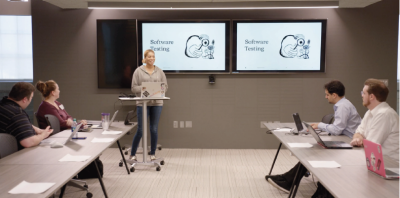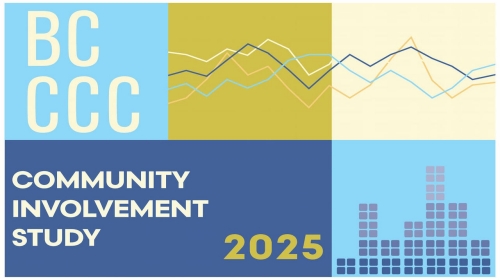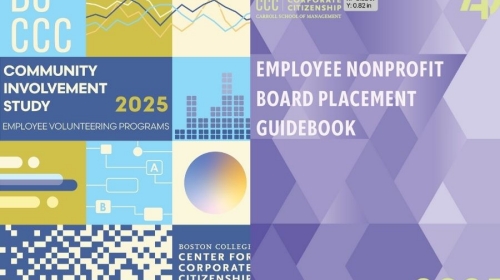WEBINAR: This webinar explores how to measure and communicate your organization's social impact with proven frameworks and strategies that matter to stakeholders.
Launching Students to Success

This post is an excerpt from the Winter 2020 issue of The Corporate Citizen: Deliver Impact Globally.
The most effective partnerships arise when a company brings its best resources and skills to a nonprofit, which in turn can help firms access new tools and ideas to address material issues. Here we look at Mailchimp, which is utilizing the power of community partnerships to find creative solutions for underserved communities.
Mailchimp’s mission is to help small businesses “look pro and grow” by providing a full suite of services that allow businesses to market themselves across email, social, landing pages, advertising, postcards, and more. At its heart, Mailchimp is a company that champions the underdog, which translates to its corporate citizenship practice and culture of experimentation. Mailchimp’s goal is to help businesses grow. Partnerships with local organizations play a crucial role in achieving this mission, in which Mailchimp builds connections with schools and nonprofit organizations to empower the community through education.
An example of Mailchimp’s innovative community partnerships is Launchpad, a leadership academy the company created in partnership with Clayton State University. Launchpad helps students and faculty adapt to the expectations of the 21st century workforce through classes emphasizing technical, social, and business skills. While corporate innovation centers are typically situated in prestigious research institutions with vast alumni networks and resources, Mailchimp chose to devote its attention to Clayton State, whose student body is comprised of many first-generation, local students.
Launchpad combines classes with internship experiences for hands-on learning. Participants learn from Clayton State faculty and professionals from Mailchimp about skills that will help them succeed in the rapidly expanding digital economy, such as cloud computing and information security. After completing courses, the participants are challenged by a final project that asks them to develop a software-based solution to a problem the Clayton State community faces, which amplifies the impact of the program across the entire student body. By collaborating with a higher education institution serving Atlanta’s future, Mailchimp aims to bridge knowledge and opportunity gaps within the IT sector and foster next-generation leaders in the digital technology space.
Mailchimp continues its dedication to inspired partnerships through Mailchimp Community College, a leadership program that motivates the company’s employees to think about their local community through the lens of equity. To design the program, Mailchimp partnered with the Community Foundation for Greater Atlanta, a philanthropic institution that connects donors to nonprofits with the goal of addressing social issues affecting the city. The program fosters leaders within Mailchimp who can spread their impact outside of the company and across the community.
When Mailchimp Community College began, 12 employees formed a cohort that engaged in conversations with civic leaders, nonprofit executives, and community organizers to learn about the challenges they face in their mission to improve every Atlanta citizen’s access to equal opportunities. The program offered 32 hours of courses that examined equity through lenses such as transportation, criminal justice, and affordable housing. Using what they learned in class from local leaders, the cohort awarded grants totaling $200,000 to local nonprofits dedicated to the mission of creating a more equitable Atlanta.
The Community Foundation’s knowledge of local nonprofits plays an instrumental role in this process. Lain Shakespeare, Mailchimp’s senior director of corporate citizenship, knew this from the start and was committed to choosing a partner with deep ties to the community and a strong understanding of equity. “Our team wanted to help nonprofits build big ideas and simultaneously help our employees grow into corporate citizens. Partnering with the Community Foundation was an obvious choice for us,” said Shakespeare. The Community Foundation’s access to local nonprofits and community leaders helped Mailchimp build a program with a comprehensive scope of the issues at hand.
To champion the underdog, Mailchimp understands that it needs to empower employees to go out into the community and lead projects that inspire change. By combining employee education with local activism, Mailchimp facilitates a deeper investment in community issues and strengthens its devotion to impacting underserved populations in Atlanta.
Read more in the Winter 2020 issue of The Corporate Citizen: Deliver Impact Globally.
Related Content
RESEARCH BRIEF - Researchers investigated how ESG activities help or hurt financial performance, using nine years of data from over 1,200 global companies.
RESEARCH BRIEF - Researchers analyzed 4 US energy exchange-traded funds (ETFs) over 15 years, including 2 dirty energy funds tracking fossil fuel companies and 2 clean energy funds tracking renewable energy companies.
RESEARCH BRIEF - Researchers conducted a survey, which measured perceptions of CSR and ethical leadership within the manufacturing and service industries.
WEBINAR: This webinar explores how corporate giving will be reshaped by the One Big Beautiful Bill. Hear directly from corporate citizenship leaders as they share innovative, real-world strategies that deliver impact for communities and results for business.
This study explores shifting trends in employee volunteering, corporate giving, and other means of corporate community involvement.
This guidebook offers insights on placing employees in nonprofit board service roles.
This study explores shifting trends in employee volunteering, corporate giving, and other means of corporate community involvement.








